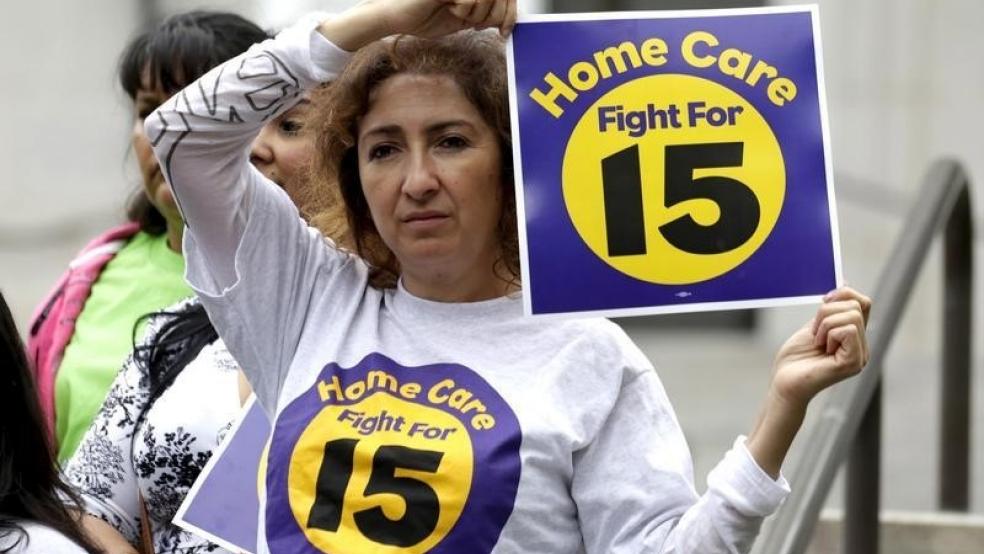The Congressional Budget Office on Monday released its analysis of the effects of raising the minimum wage to $15, providing both supporters and detractors with fresh ammunition in the battle over the measure, which some Democrats hope to include in President Biden’s $1.9 trillion Covid relief bill.
The CBO said that raising the minimum wage to $15 per hour would increase the federal deficit by $54 billion over a 10-year period. The analysis assumes that the wage increase would occur incrementally, beginning at the end of March and phasing in over four years, reaching the full $15 in June of 2025. The increase in the deficit would be driven by higher prices for goods and services purchased by the federal government, as well as increased spending in some programs, such as unemployment insurance. Higher interest payments would add another $16 billion to the cost, the CBO said, for a total of $70 billion.
The minimum wage hike would also lead to the loss of 1.4 million jobs, according to the CBO analysis, while lifting about 900,000 people out of poverty. Total wages for those directly affected by the increase would rise by $333 billion over the 10-year period, the difference between higher pay (a total of $509 billion) and reduced employment (a loss of $175 billion).
CBO score could open door to including wage hike in relief bill: The CBO analysis could bolster the effort to include the minimum wage hike in the Biden relief package. The chances of it making it into the final legislation have been clouded because any measure in a reconciliation bill must be directly related to budgetary matters. Biden told CBS News on Friday that he didn’t think the wage hike would survive and was preparing for “a separate negotiation” on it.
The CBO score means that the provision would have a measurable impact on the budget over time, potentially meeting the requirement for a reconciliation bill.
Senate Budget Committee Chairman Bernie Sanders (I-VT), who wrote the measure, expressed doubts about the CBO analysis, but also said it could help. “I find it hard to understand how the CBO concluded that raising the minimum wage would increase the deficit by $54 billion," Sanders said. “The good news, however, is that … the CBO has demonstrated that increasing the minimum wage would have a direct and substantial impact on the federal budget,” he added. “What that means is that we can clearly raise the minimum wage to $15 an hour under the rules of reconciliation.”
Sanders also said this weekend that in his view the reconciliation bill was the only way Democrats were going to be able to pass a minimum wage hike. “Let's be clear. We will never get 10 votes from Senate Republicans to pass a $15 an hour minimum wage,” he tweeted. “The ONLY way we can do it now with 51 votes is through the reconciliation process.”
Could bolster critics, too: The projected job losses in CBO’s analysis will no doubt be deployed to reinforce the argument that the minimum wage hike will harm the economy. Referring to “the radical Democrat legislation,” Rep. Virginia Foxx (R-NC) said the CBO analysis paints “a dire picture for workers and small businesses.”
The CBO’s conclusions about job losses have their own critics, though. William Spriggs, chief economist at the AFL-CIO, told reporters Monday that while his organization doesn’t usually “like to yell at the referees,” in this case, “the CBO has stepped outside its bounds.” Charging that the group has “no clear systemic research” to justify its analysis, Spriggs said the CBO is claiming a high degree of certainty on an issue marked by enormous uncertainty. “The CBO is kind of, out of whole cloth, making those claims,” he said.




